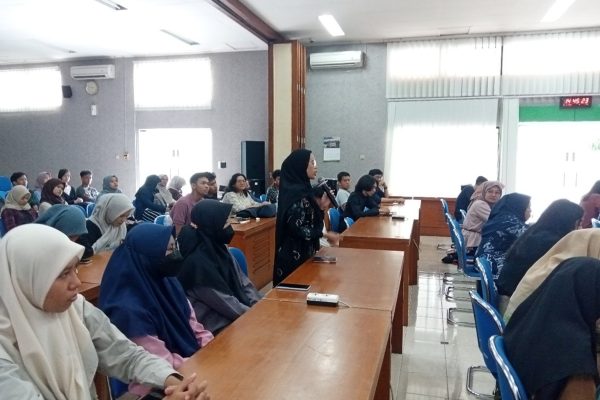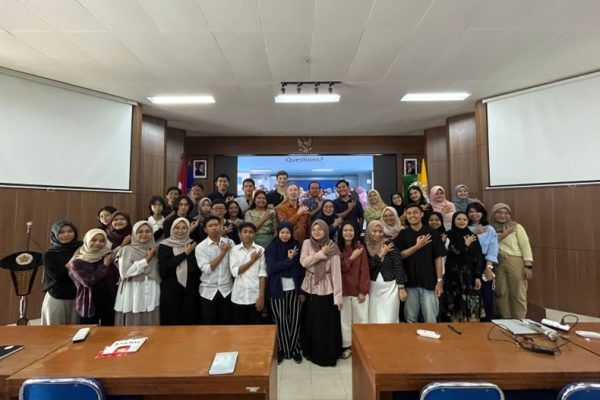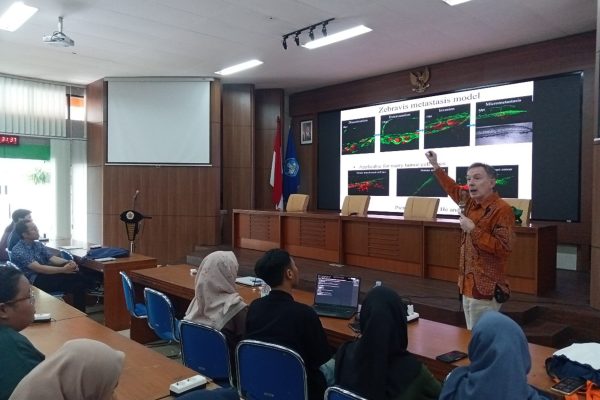Yogyakarta, February 13, 2024 – The Faculty of Biology at Universitas Gadjah Mada (UGM) successfully held a guest lecture titled “Exploring Genomics and the Role of Zebrafish as a Model Organism” on Thursday, February 13, 2024, at the Tropical Biology Auditorium, Faculty of Biology UGM. The guest lecture featured Prof. Dr. Herman Pieter Spaink, a Professor of Molecular Cell Biology from the Institute of Biology Leiden (IBL), Leiden University (LU), Netherlands. The session was moderated by Dr. Luthfi Nurhidayat, a lecturer in Animal Physiology at the Faculty of Biology UGM.
In his presentation, Prof. Herman highlighted the background of the zebrafish research collaboration between Leiden University and Faculty of Biology UGM, which has been ongoing since 2019. This collaboration was realized through the establishment of “Twin Labs UGM and LU”, a joint research facility dedicated to developing studies on bioactive components that contribute to health and nutrition.
Prof. Herman explained that zebrafish were chosen as the primary subject of this collaborative project due to their ease of cultivation and the significant genetic similarity they share with humans. Therefore, zebrafish serve as a model organism in health research to study various human diseases, including tuberculosis, diabetes, cancer, neurovascular diseases, immune disorders, and Alzheimer’s disease.
Additionally, Prof. Herman elaborated on several ongoing and completed projects with UGM, such as the use of robotic injection systems on zebrafish embryos and sequencing of various local fish species in Indonesia. He emphasized that this collaboration is of high strategic value as it optimizes the utilization of Indonesia’s bioactive components by combining Leiden University’s expertise in zebrafish screening, which has resulted in over 200 scientific publications.
At the end of the session, Prof. Herman expressed his hope that the collaboration between UGM and Leiden University will continue and bring significant benefits to both universities and countries. With increasingly close synergy, it is expected that the research produced will make a substantial contribution to the development of global science and health.



